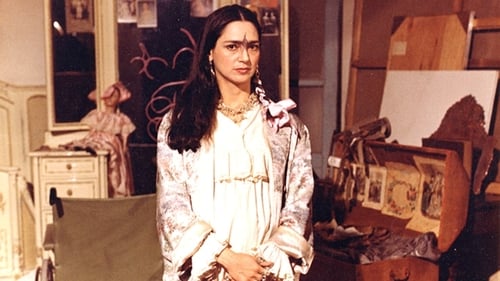
Abuelita
Duas irmãs gêmeas idênticas, separadas no nascimento, uma verdadeiramente decente, mas humilde, a outra ultra-rica, conivente e verdadeiramente destrutiva. Elas logo se encontram irremediavelmente entrelaçadas na vida uma da outra. Versão cinematográfica em formato musical da novela mexicana 'La usurpadora' (1998).

The world has woken up surprised by a massive catastrophe, the disappearance of millions of people who are apparently homosexual. Ale, a girl who was adopted by a same-sex family, is in danger, as the country's government is taking preventive measures in light of the event, and intends to return all the children who were adopted by these families to the orphanage where they came from.

Self (voice)
A compilation of 20 Mexican children's song, composed from 1850 to 1950, ranging from lyrical to surrealist, illustrated with digital animation.

Sofía
Bruno, a novelist with no luck goes to call for help from his love always sofia, who is in Veracruz desolate without knowing what to do with the corpse of her boyfriend who died because of a heart attack while they made love

Pilar Cervantes
Juan and Pilar return to Mexico City on the same train. Destiny cross their paths in a taxi stop, off the train station. A cab arrives and they take each other's baggage by mistake. After that, they spend two days looking for each other, trying to recover their stuff. In the meantime, Juan reads Pilar's diary and she listens to his thoughts recorded on tape. Love begins to grow between these two proper strangers.

Self
Award-Winning filmmaker Paul Leduc (Frida, Naturaleza Viva, Reed: Insurgent Mexico, Barroco) directed this gritty musical drama about life in the ghettos of Mexico City during the 1980s. With a soundtrack of Mexican rock music, the camera takes the viewer through the streets, to rock concerts, and to the bars and clubs, where he exposes the hunger, repression, unhealthy conditions and violence in the marginal communities of Mexico's capital city.

Frida's Sister
This film is a chronicle of painter Frida Kahlo, and her encounter with the personalities of her time. Despite being confied to a wheelchair as a result of polio, operations and amputations, she faces and traces some of the most colorful and controversial aspects of Mexican history, during the dominant time of Mexican muralism.

Women escape from prison to search for a treasure whose location has been revealed to them by a dying old woman.

Mexican feature film

An actor from the provinces, a soap-opera star, reaches the big city with dreams of success. Partly through sincerity and partly prompted by an uneasy conscience, he wants to revolutionize the traditional photo-novel by linking it to social and political reality, to "bring social conscience to the masses" by utilizing this traditionally manipulative and alienating mass medium. The film narrates, in a tragicomic tone, the itinerary followed by Gualberto Rodriguez in his efforts to produce his 'revolutionary' photo-novel: the story of a peasant that migrates to the city, becomes a blue-collar worker, tries to establish a union, and ends up falling in love with the factory owner's daughter. The 'revolutionary' ends up being used, manipulated, and his project fails completely.








